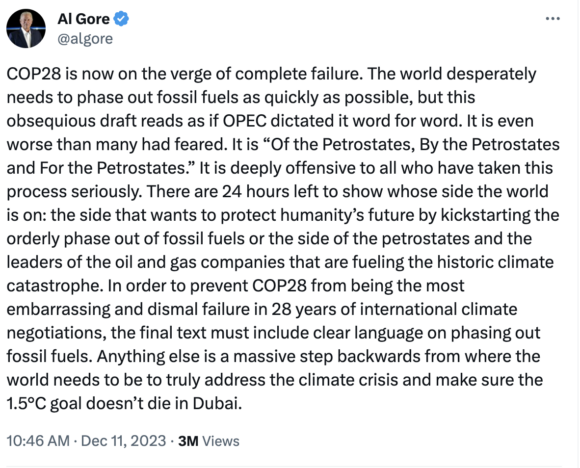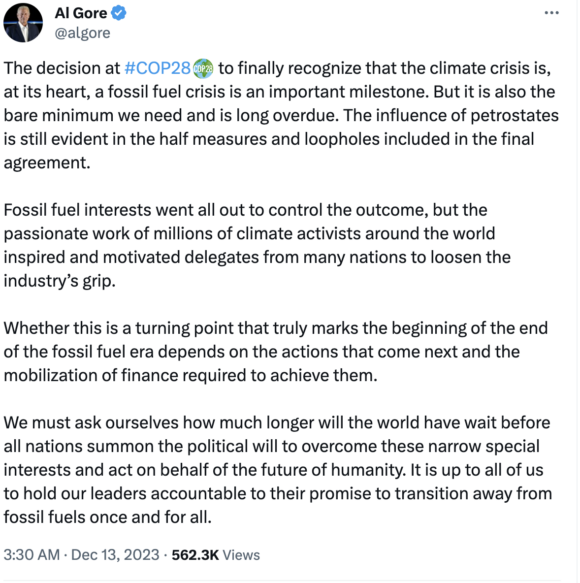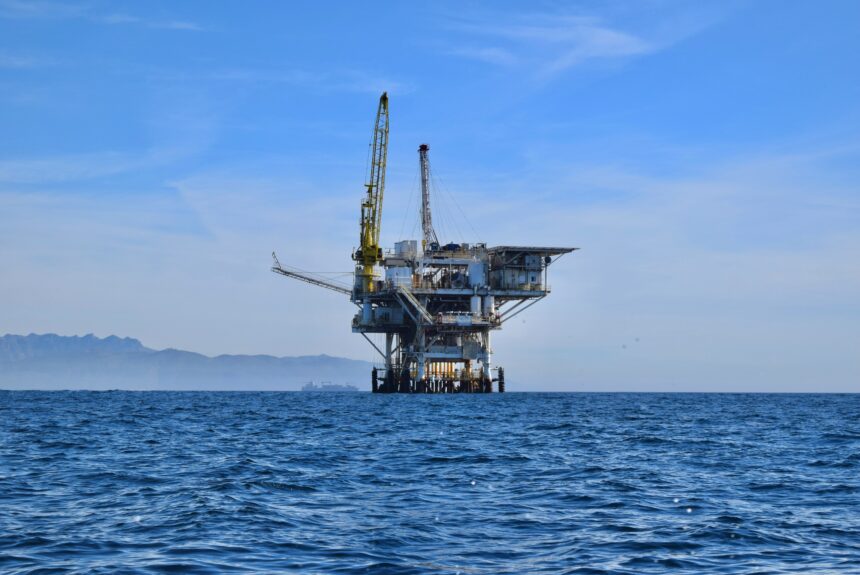The COP28 UN climate conference in Dubai ended last week with a flurry of self-congratulatory commentary about the “historic” nature of the final agreement in which parties, for the first time, overtly backed a process of “transitioning away from fossil fuels in energy systems, in a just, orderly and equitable manner.”
The final language was an enormous relief to many on the far left. Early in the conference, COP President Sultan Al Jaber shocked and offended that faction when he reminded participants that moving away from fossil fuels too quickly would “take the world back into caves.”
>>>READ: When Climate Ambitions Meet Energy Realities
For those who haven’t attended a COP, think of it as the world’s largest trade show (80,000 people attended COP28) and copy-editor Survivor where high officials negotiate stilted prose over almost two weeks. COP statements have no binding authority on participating countries, but all participants and observers invest considerable time and energy in shifting the Overton Window toward their preferred policies and worldview.
For much of COP, the big question was whether the final statement would call for a “phase out” or “phase down” of fossil fuels. Just before the conference wrapped, Al Gore panicked when it appeared his preferred “phase out” language wouldn’t survive.

Just a few hours later, Gore saw an opening to at least claim the final language affirmed his dogmatic, anti-fossil fuel worldview.

Big did Gore really get his way? Not as much as he thinks. Al Jaber’s vivid imagery of bad climate policy sending the world back into caves will certainly linger longer than the final agreement’s bureaucratic prose.
When Gore insists “the climate crisis is, at its heart, a fossil fuel crisis” he’s sacrificing science – and the world’s poor – on the altar of ideology. Thankfully, many COP28 participants disagree passionately with Gore. Many would side with science and argue that the problem of greenhouse gas emissions is a problem of greenhouse gas emissions, not “fossil fuels” per se.
>>>READ: A Clean Economy is a Free Economy
We hosted a frank off-the-record symposium on durable climate solutions with diverse and influential voices and compared notes with participants around the world. Behind the scenes, seriousness and sober realism loomed larger than dogma. COP28 shifted the conversation toward the realist bloc that recognizes that a bottom-up “all of the above” energy strategy that balances climate goals with energy security and food security will move the world away from carbon-intensive energy faster than a top-down “everything but fossil fuel” strategy that trades science and sound economics for protest theater and cartoonish demagoguery against “Big Oil” and “Petrostates.”
On that note, It’s important to recognize that COP had other important outcomes. The final agreement emphasized nuclear energy with 22 countries agreeing to triple their nuclear capacity by 2050. Oil and gas companies also pledged to voluntarily zero out methane emissions by 2030.
Al Jaber simply and wisely noted at the beginning of COP, “Energy is our friend.” He’s right. Backing energy tradeoffs that slow or stop growth would be catastrophic for global security, development, and the environment. Thanks to his leadership, COP28 inspired a shift toward climate realism that recognizes that lifting millions of people out of poverty through energy security and food security will lead to vastly better environmental outcomes than demonizing any form of energy.
Our latest Free Economies are Clean Economies report finds that countries that embrace economic freedom are twice as clean as countries that don’t. As Chris Wright, the CEO of Liberty Energy notes in our foreword, it’s impossible to manage energy markets from Washington or any central body. He argues that when central planners try to pick winners and losers “there will be many more losers than winners if policies trap people in energy poverty.”
If you’re serious about climate change, the primary goal should not be to “phase out” any form of energy but to phase in economic freedom and opportunity, especially in places where it is lacking.
The views and opinions expressed are those of the author’s and do not necessarily reflect the official policy or position of C3.
